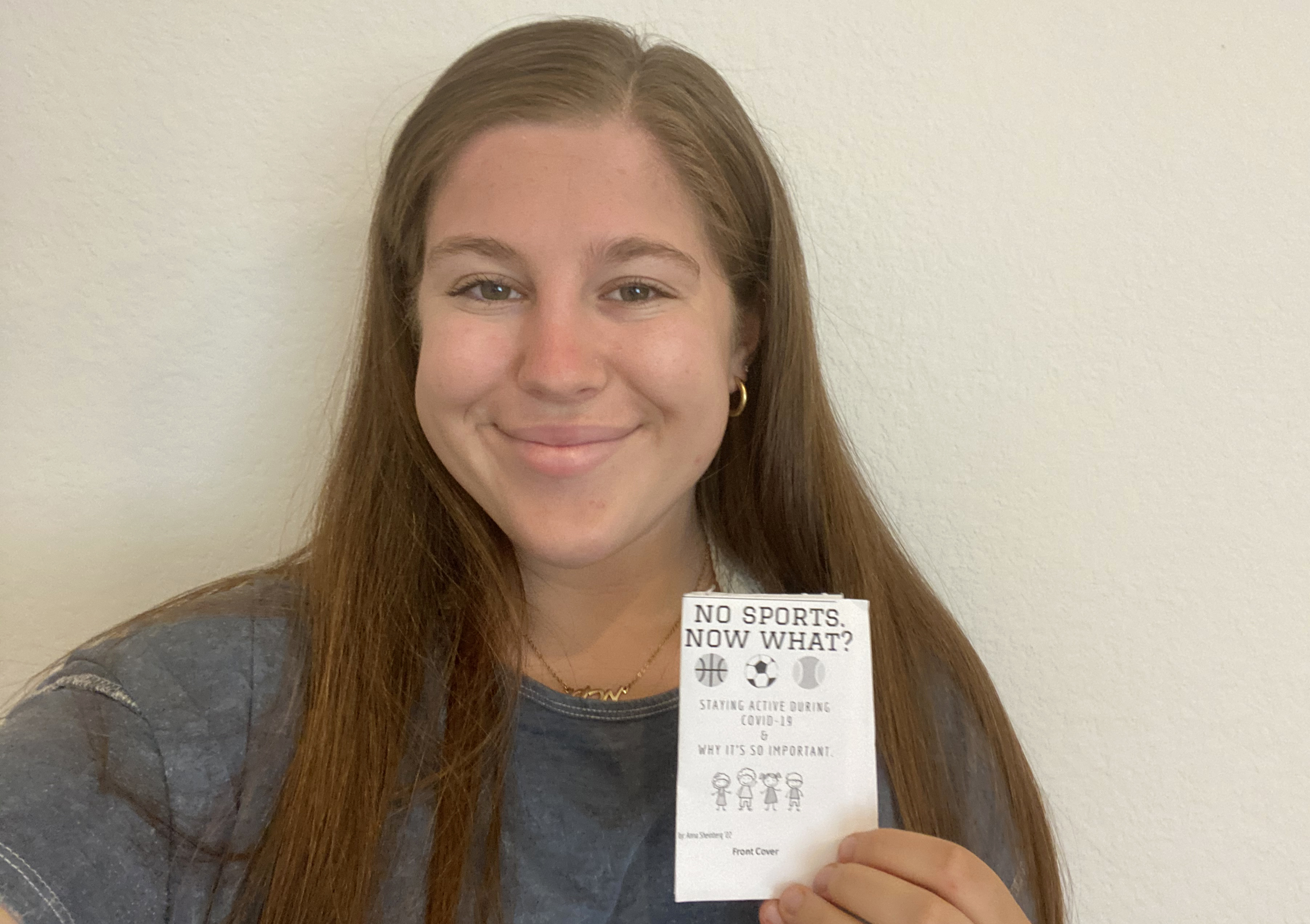Assistant Professor of Philosophy Lauren Guilmette’s Health and Social Justice students support Alamance County residents by distributing zines with information about COVID-19.
Though the students in Assistant Professor of Philosophy Lauren Guilmette’s Health and Social Justice class are now scattered throughout the country, they’re uniting to serve Alamance County residents for their final projects.
They have been learning about and creating zines, short for magazine or fanzine, which are handmade, small-circulation publications often related to communities in the margins. Partnering with Elon Archivist and Assistant Librarian Libby Coyner, who is a zine expert and produces a blog about zines for Belk Library’s website, the students have been examining the many ways zines can be utilized and how to make them.

Earlier in the semester the students created personal zines to contribute to a campus-wide project collecting first-person accounts of living through the pandemic.
For their final zine project, the class initially planned to make fellow students their audience, addressing general health questions they face. Once the COVID-19 pandemic began to spread, the class responded and decided to make Alamance County residents the intended audience instead. Each student chose one issue connected to the pandemic, researched the local resources related to that topic and compiled the information into a small zine they’re designing. They will be a single sheet of printer paper, folded into eighths to create eight small pages. Guilmette says that their size and low-tech format make them feel less formal, uniquely accessible and user-friendly.

The zines are now in production and cover a variety of important topics. A set of zines is addressing domestic violence during this time, with one zine aimed at children who might be experiencing violence and another targeting elder care and elder abuse. One zine offers guidance on how to apply for unemployment and another provides information about applying for housing assistance. There is also an instructional zine, illustrating how to make an inexpensive face mask and explaining the reasons for wearing it.
“With this class, I want to foster a sense of place and connectedness to Alamance County for Elon students, encouraging them to think about health inequity and shaping access to care,” Guilmette said. “It ended up being well suited to address the pandemic and focus a response utilizing community partnership.”
While at her family’s home in Austin, Texas, Anna Sheinberg ’22 connected with youth sports directors in Burlington for input about what she should include in her zine targeting local kids. A soccer player and coach, she was ready to make her project focused on the sport, but her conversations taught her that a broader focus would better serve her audience. Team sports aren’t happening now, and some kids may not have access to soccer equipment. The priority is to encourage kids to simply get outside and move, so Sheinberg followed that input to create her zine, which is in Spanish and English. As the semester draws to a close, she feels the class has been a success.
“Dr. Guilmette has made this class incredible,” Sheinberg said. “She’s really encouraged us to work together and has helped us stay connected, not only to one another but also to the community. We’re using a low-tech and accessible method to spread information about important resources we know about, while thinking critically about language and presentation. It’s a tangible way to make an impact.”
Guilmette received a Community Partnership Initiative Grant from the Kernodle Center to establish community connections in East Burlington through multiple projects and partnerships, and she’s using some of that funding to pay for the printing costs of the students’ zines. Once they’re created, she is planning to distribute them at community resource spaces like the Dream Center and the Mayco Bigelow Community Center. With zines available for multiple ages and audiences, different family members should be able to find ones that are helpful to them specifically.
“The Alamance Resiliency Coalition is helping not only Burlington residents to respond to this crisis, coordinating information between various efforts, but also brings the lens of trauma and working through grief, which is important for local residents but also for our students right now,” Guilmette said. “To have a shared space of meaningful work is important, I think, for their mental health, in addition to contributing valuable work to the community.”



